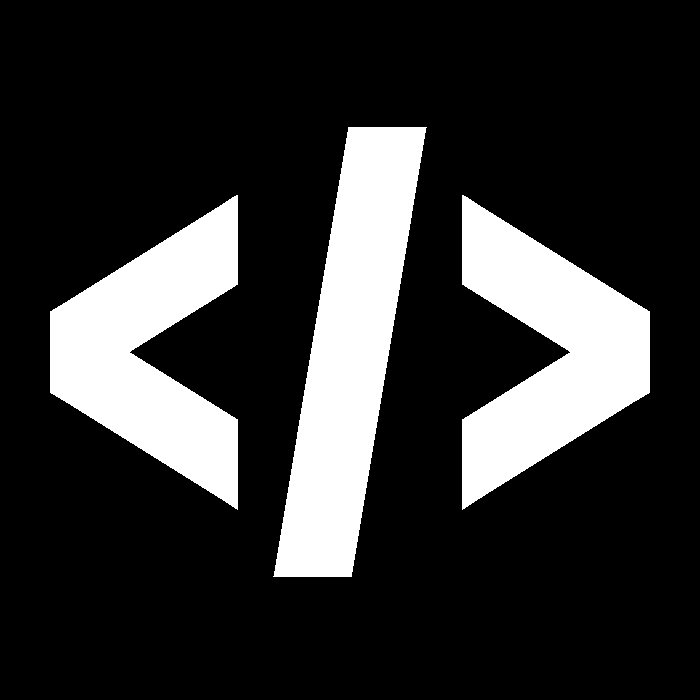I dusted off my RPI4 and started tinkering with self-hosting things and it’s sparked a fire. Suddenly I have 7 docker containers running and I need more RAM, more space and I want something reliable with room to grow. I like small form factors but it doesn’t need to be RPI small. Any recs for your favorite hardware under $500?
Intel NUC. Myself I prefer Proxmox as the first layer (so I can do stuff remotelly), and Alpine Linux VM as a second layer.
This been rock stable for me for the past 1 year or so.
NUCs are great little boxes. I have extensive experience with them. Not a lot of room for RAID or other nice to haves, but besides that even in some pretty bad environments they just happily sit there chugging away year after year.
The fan can get gummed up, but if your environment is at all reasonable it’ll probably not be a problem. OTOH, you can buy these massive fanless cases for a NUC that make the whole question moot.
I’ve replaced fan once. Purchased from Ali. Works like a charm.
The reason why I had to replace fan is because it is CCTV-Viewer host and the app is not using hardware acceleration (not supported). Lots of cameras, CPU is usually around 60-70% 24/7 and temperature usually never drops below 80°c. It’s expected in my case.
The other NUC is running 24/7 as media center/home server for the past 2 years and to this day works like a charm.
What specs is yours if you don’t mind me asking? I have a 10th hosting Proxmox and 11th hosting ESXi, but both at 32GB. Wondering if I should take the plunge and just upgrade them both max out at 64GB.
My specs:
- NUC10i7FNK
- Intel® Core™ i7-10710U Processor (12M Cache, up to 4.70 GHz)
- 512GB NVME SSD, I think it’s Samsung 970 pro
- 32GB of RAM, I think it’s DDR4-2666 (fastest supported)
I can’t comment on your “Wondering if I should take the plunge” as it highly depends on use-case. At home I am not very into HA as it gets ridiculously expensive (and I am not making money out of my services, such as Jellyfin, Homeassistant, adblocking DNS and so on).
Exact same setup as you except a larger NVME. Makes sense, no need to sink excessive cash into it. :)
This is pretty much exactly what I do. I’m partial to Debian though.
Do you run off a relatively new NUC or an older one?
Wow, first I’m exposed to Proxmox, looks really cool. I’m currently handling remote via Cloudflare Tunnels and it’s working well but I’d love something that will manage multiple servers in the future and this looks like the ticket.
Well, this is not what I meant “remotelly” 😂. I realised I am too lazy to setup monitoring (Telegraf/VictoriaMetrics/Grafana) so I look into VM metrics in proxmox. Also I can reinstall VM remotelly if I fuck things up - very convenient.
I have a couple of Intel NUCs and they are great, one is the first generation NUC with the Celeron and runs Home Assistant without problems.
At the moment I am eyeing the new N100 CPUs they are pretty powerful compared to the previous generation. Asrock and Asus are bringing out motherboards with the CPU soldered and they are also fanless. The Asrock is nicer because you don’t need a real PSU for it and it has an extra SATA port. They are not yet available.
https://www.asrock.com/mb/Intel/N100DC-ITX/index.asp
https://www.asus.com/motherboards-components/motherboards/prime/prime-n100i-d-d4/
Planning on making an unRaid miniPC
There are so many brands of these NUCs on Amazon it’s dizzying, it’s hard to know what’s reliable or just cobbled-together hardware. Should I just stick to the big names like ASUS or are there some diamonds in the rough?
Personally, I would stick with name brands in case something goes wrong. Asus is ok or you can get directly with Intel, they are the original creators. Before deciding to wait for a N100 motherboard I was looking at getting the Intel NUC13ANHi3 or the i5 version.
+1 for a NUC. There’s plenty of second hand ones on Ebay which can be had at around $100. The nice thing is that they have ultra low voltage CPUs so the power bill is not a concern with running 24/7.
The new N100 is also a 6W processor.
Neat, looks like RPi4 consumes around 6W at full load as well.
NUCs are great if you can snag them on sale or for a good deal but they’re (somewhat) like Apple nowadays, paying the “NUC tax” imo. You can usually find other SFF with similar or better specs for cheaper on eBay. HP Prodesk (Mini) for example you can grab some extra RAM and a cheap SSD to max it out.
I have some (refurbished) HP mini PCs that are pretty decent, you can probably find similar things well within that range. You could also consider an off-lease/used server in that price range, but will have to do some hunting to find something you like. Also, servers can be a bit loud and power hungry (the efficiency of the compute is lower than e.g. a mini PC or a Pi, but it will have way more compute. Servers with something like dual hex core CPUs and 64+ GB of RAM are not uncommon).
I run both mini PCs and server hardware, using the server hardware mainly for storage or services that need quite high availability (auth, reverse proxy, password vault) and the mini PCs for most everything else (minecraft servers, wiki, jellyfin, etc)
HP EliteDesk 800 G3 go for about 110€ on eBay in my area so they should have similar pricing in the US. Bought three of them and upgraded each one to 32GB of RAM and 1TB of NVME storage. They’re near silent and draw very little power which is perfect for me. I’ve set them up as a Proxmox cluster to host a bunch of VMs for messing around. I wouldn’t recommend them for applications that do video encoding though. Plex for example can bring one of these machines to its knees when you’re dealing with very large 4K Blu-ray rips like I am. In that case I usually just run Plex on my desktop when I need to.
deleted by creator
Do you have the Mini one or the regular one? Because the fan in my Mini is kinda annoying even on low speeds. Now I wonder if it’s normal or if it’s broken somehow.
Sorry for the late reply, notifications weren’t working properly in my app.
Yes, I mean the Mini not the full-size desktop.
Definitely a NUC or similar mini PC from the likes of Geekom, Beelink, or Minisforum. My whole homelab was mini PCs until I consolidated to a NUC 12 Pro as I build up my rack. Slap Proxmox on the machine, build some VMs and LXCs, and have at it.
Or HP/Dell units second hand. Tons of companies ditch those computers after two o three years and they’re still perfectly good for self hosting with Linux. We can also find really good deals on Intel 9th gen machines for around 35% of the price of all those you suggested brand new.
Do you know a good place to find those second hand? That sounds like a pretty solid option to me
If you’re in the US eBay is usually the way to go.
In the US, you could also look at your local government, university, state oversupply store. They usually have either a store where you can buy decommissioned computers.
I’d recommend taking a look at used small form factor PCs on eBay. I’ve been using one for a couple years now that came with an i7-8700 16GB of ram and an nvme SSD for about $300. Running 30+ docker containers without any issues (most are lightweight to be fair)
The only drawback to small form factor is that you have limited expansion opportunity with the unit itself. In my case I use an external NAS for storage of larger files.
ServeTheHome has a bunch of videos on YouTube about these small form factor computers.
In my case I use an external NAS for storage of larger files.
What’s the advantage of using a NAS system?
I’m considering options for adding more storage right now and I’m not sure if I should just chuck some more drives in my linux server, or move up to NAS. The main downside of adding more drives is that I’m spending money without getting any more reliability (it’s just some drives and a SAMBA share, no RAID, and only ‘sometimes I remember to move important files to S3’ for backup. Conversely, with a NAS I’m spending an extra like $500 on hardware before I even add storage.
It would be nice to have some reliability, but I’ve never had NAS before, so it’s kind of an unknown for me, plus it seems like I could invest some time and add similar reliability/backup features to my existing system.
That’s why instead of getting a more higher spec mini PC I went with 3 cheaper ones to start a highly available cluster. More reliable, and room for expansion! Somewhat a pain to setup though.
I used to run a Dell R710, but that got expensive with the electricity prices shooting up. So I moved to a standard consumer hardware PC in a rack mount case. Ryzen 5 5600, 64GB RAM, 500GB NVME, SSD boot disk, 6x 3.5" disks for storage. It uses half the power and is a fair bit quicker than the old dell with dual X5670 Xeons. One day I’ll move to just 2x larger disks instead of 6, but that’s expensive at the moment.
I totally get moving away from the dell. I’ve got one sitting in my rack now, and I’ve been thinking about getting a nuc or two as replacement to see if I can drop my power bill.
How much of a difference did you notice in your bill when downsizing?
It’s running at roughly half the power of the dell, which was at 220W idle. A lot of that will be the spinning disks, HBA card and 4 port intel NIC. A barebones system with just one ssd would be about 30W idle.
The NUCs are great but storage and networking are limited. I use Opnsense in a VM as my router so needed a few more ports. And the storage options on a NUC seem very limiting. Perfect for application servers, just not storage servers.
That’s about what I was expecting. Yours is running about 30W higher than mine, but that’s still a hell of a delta.
Thanks for the other points as well! NIC quantity will be an issue since I will be moving my esx over, but hopefully I can limp by on a single line and let VLAN tagging handle most of my mess. I’ve been running some of my VMs via iscsi storage, and it performs well enough for my uses at home.
Keeping storage and compute separately is the best practice but if you’re OK with combining both in one device then running docker-compose on a Synology (via SSH, + versions only) works just fine. An alternative that reduces the lock-in at the expense of more tinkering is buying an amd64 QNAP and installing Openmediavault / TrueNAS / plain Debian.
Perhaps I can delegate the RPI4 to handle storage and then do compute on a new NUC.
Why is it superior to keep them separate, if you don’t mind me asking?
Not OP, but I’m running into some issues with my machine being both my “server” and my “NAS”.
The biggest downside is that if I want to update my storage, I will also have to update the server, and viceversa.
Sometimes the server goes down for whatever reason (e.g., distro update), and I lose access to the storage as well.
Other than a very old laptop that acts as a DC, and my NAS, I have five Lenovo M920 (i5, 64 gigs of ram, 256 gigs SSD, and 512 gigs M2) in a XCP-NG cluster.
At the moment hardware is just expensive. I ended up with a NUC with 32gb of ram in order to future proof myself while I wait for hardware to become cheaper. Other than another stick of ram I can’t see me needing to update any time soon.
I am still quite happy with my old Sun Fire X2270 M2 with Dual Xeon X5675. Not new, but its 12 physical cores, 88 GB RAM and 4 hotswap SATA drive bays in a 1U rack unit make it quite a decent machine for running a couple of VMs.
I also like my Dell T320 Rackable Tower server. It has room for 8 hotswap 3.5" SAS drives (or 16 2.5"), redundant power supply, and you should be able to get it for under $300. With a Xeon E5-1428L V2, mine is still quite capable and uses between 140 and 160 W (with 8 disks).
Wow, that’s a ton of computing power for the money.
Mini/USFF or just MT sized boxes off ebay with 8th and 9th gen Intel CPUs. Generally around $100-150 for one.
Low power usage, and you get all the good Intel HW acceleration for transcoding video or object detection on cameras and stuff like that.
USFF/Mini if you want small, or MT if you want space for some 3.5" HDDs.
Depends who you talk to and what their objectives are. I leaned heavier on homelab side than homeserver side so I use older rack mount server, but if you’re just interested in running some services at home, nothing wrong with NUCs or desktops. Most can get you over the 32-64GB of RAM level now that you’d have ample room for activity.
I use a Dell Micro with Ubuntu for docker containers mounted to a wall with a Synology NAS 4 bay for storage. I used to have a small form factor with a 12bay SAS array attached but the power consumption was ridiculous.
Very similar setup here, was running Unraid on a server with all my storage but electricity prices meant I moved my array to a Synology NAS 8bay and got a Dell 3050 Micro with a 12th gen i3 to run Unraid and keep all the Docker containers while only needing to change the mount paths
All that to say the Dell Micro is fantastic
Can’t fault it at all. I think mine is an older 7th gen, but was completely free from work. Along with the freebie 8tb disks. If only I could sell the old equipment. It’s still great hardware, but my area simply doesn’t have the population.
I just built a Server using J5040 board. With 16gb ram (yes it works) a 500gb m.2 as system , 2x4tb ironwolf, all in the node 304 fractal case for 550 euro.
Will run proxmox as first layer.
Im using refurbished thinkpads (x220-203) but i’ve seen a lot of homelabs using Nuc pc















